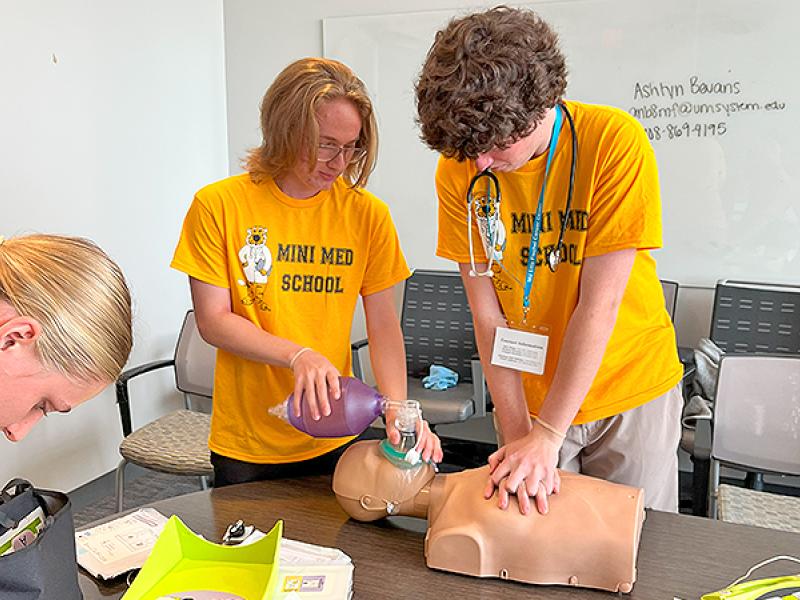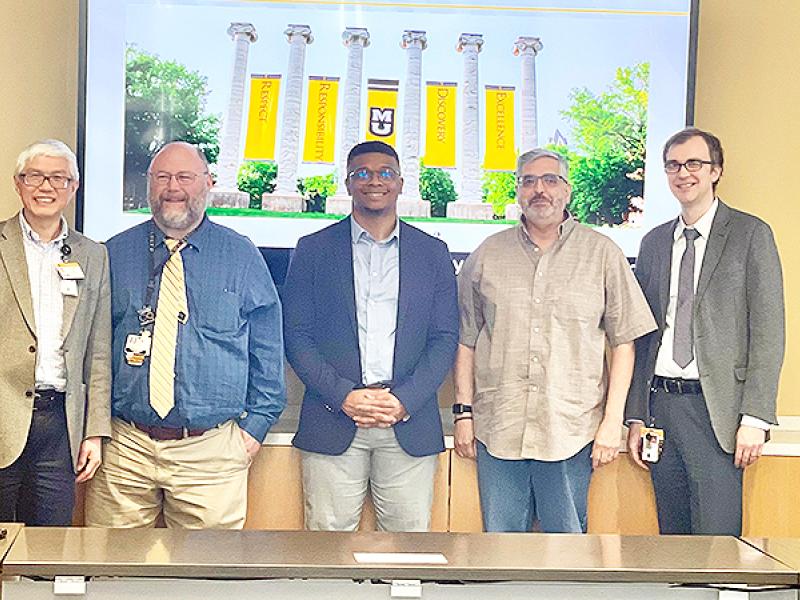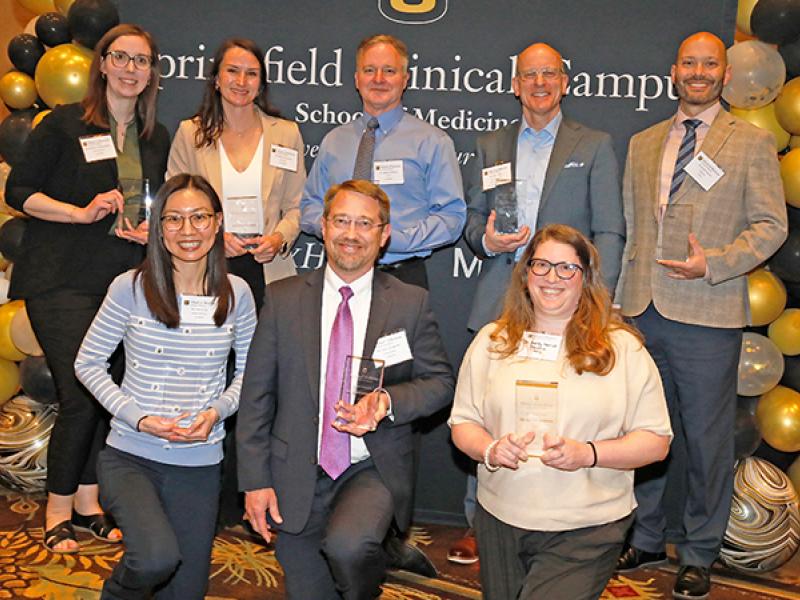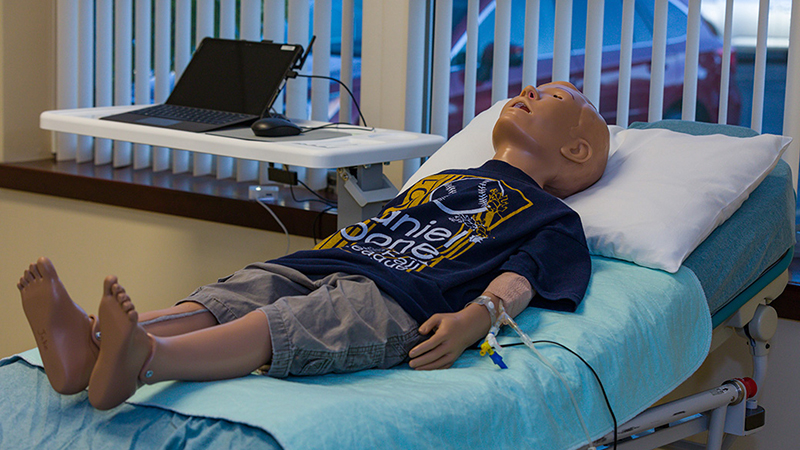
David Haustein, MD ’05, is still a young man, but when he sees students using the Shelden Clinical Simulation Center at the Springfield Clinical Campus, he marvels at the technical advances since his days as a student.
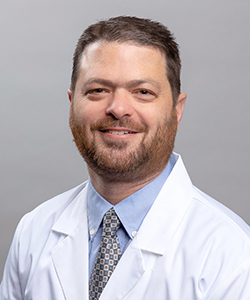
“When I was in school, I don’t remember there being many mannequins or simulated patient experiences, so when I see students doing these simulations now, I’m really jealous,” said Haustein, the associate dean of the Springfield Clinical Campus. “Our students learn how to handle delicate situations in a safe environment, from how to handle an unruly or aggressive patient or a patient having an allergic reaction in clinic or those trauma emergencies where you quickly need to assess and treat any life-threatening injuries. Students get to practice all of this before the clinical situation arises.
“Our students here can practice delivering a baby right before they go onto their labor and delivery shift where they’ll get hands-on experience. It’s a lot of just-in-time training where students train for delicate or critical situations in a safe environment prior to experiencing the situation in real life. I think that’s extremely valuable.”
Dena Higbee, the School of Medicine’s director of simulation services, said Springfield’s 10,000-square-foot sim center, which opened in 2020, has similar capabilities to Columbia’s facilities. It has four simulation rooms with individual control rooms, six clinic rooms for examining patient actors, two procedure rooms for laparoscopic training and suturing, two debriefing rooms and two classrooms.
The equipment includes a birthing simulator, procedural trainers that mimic individual body parts such as arms and heads, and four other computerized mannequins — two adults, a child and an infant — with lifelike functions.
“They have heart sounds, lung sounds, the chests rise,” Higbee said. “You can change the physiology of them as far as changing heart rate, respiration rate, blood pressure. You can add or subtract pulses. On the adult simulators, you can even do amputations at the elbow or knee to learn how to do blood control.”
The Springfield sim center is available to train not only MU medical students but also health care workers from CoxHealth and Mercy, first responders and other community members who might benefit.



